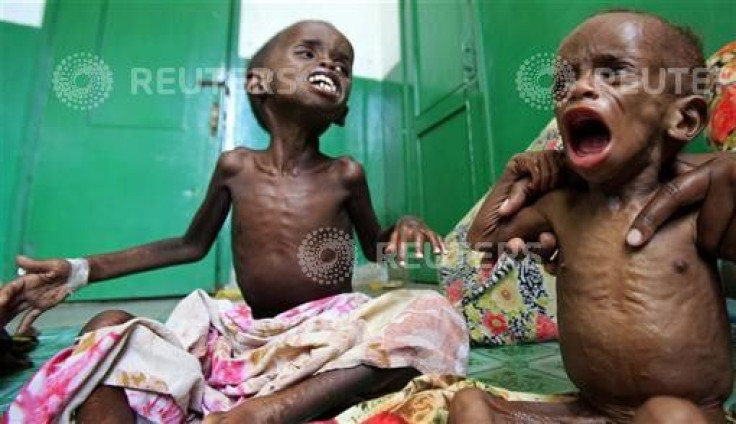Somalia famine yet to reach its peak: UN

Food will be increasingly scarce in famine-struck southern Somalia until next year's harvest, the head of the United Nations refugee agency (UNHCR) said on Thursday.
We have not yet reached the peak of the crisis, UNHCR chief Antonio Guterres told reporters in Kenya after visiting southern Somalia and the country's capital, Mogadishu.
From the point of view of the food security of the people, obviously, as time goes by, until the next harvest is possible, the situation will become worse and worse, he said.
Rains are not due in rebel-controlled southern Somalia, the worst affected area where close to three million people are at risk of starving, until October, meaning harvest will be in early 2012.
The United Nations has declared famine in five zones in southern Somalia where the al Qaeda-affiliated al Shabaab militants will not allow the U.N.'s World Food Programme to deliver food aid.
However, the International Committee of the Red Cross and other agencies like the U.N. children's fund and Islamic organisations do have access to Al Shabaab areas, Guterres said.
They are working together to try to guarantee that all areas will be covered. But we are not yet there, he said.
Somalia has been without a central government since it descended into civil war 20 years ago. Insecurity and donor fatigue have hampered the supply of emergency aid, some charities say.
For decades, we have seen very little interest from the international community (towards) the Somali crisis. We need to scale up, he said.
© Copyright Thomson Reuters 2024. All rights reserved.











